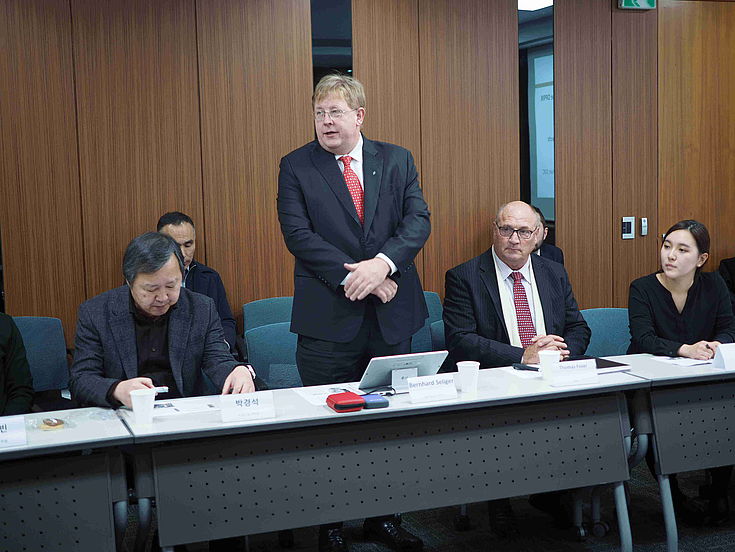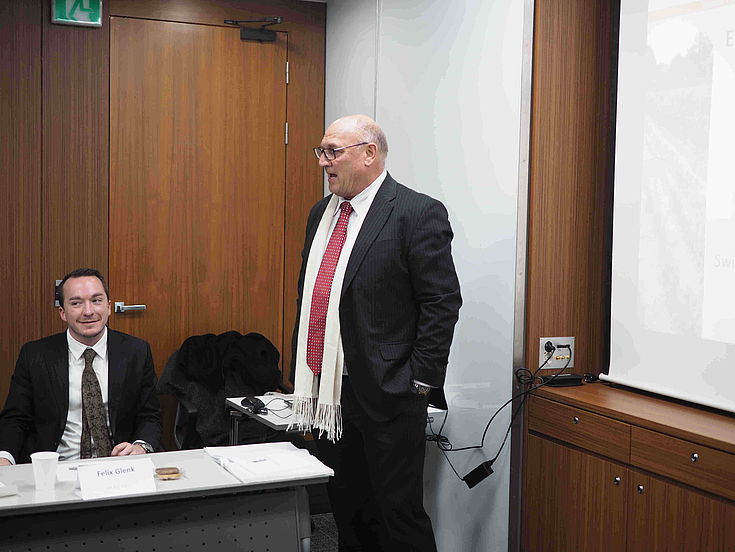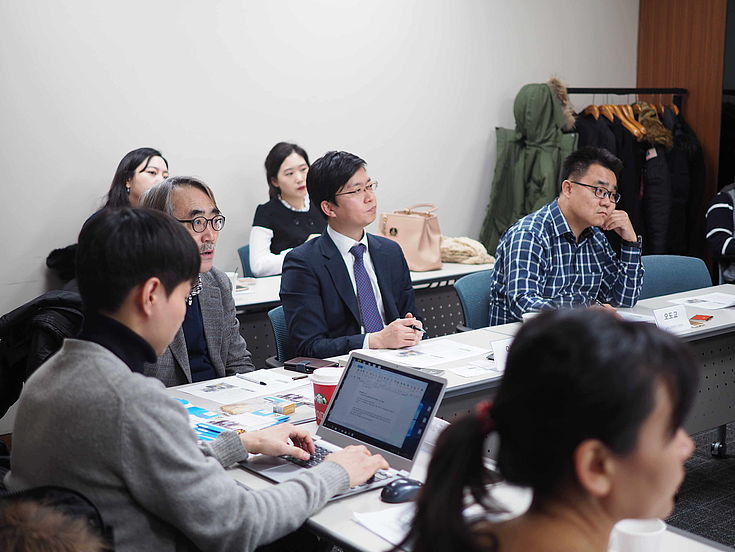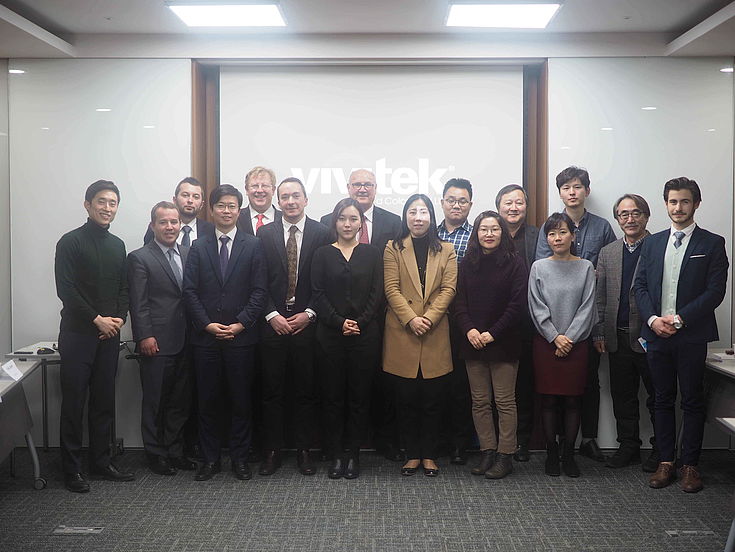Environmental Cooperation in North Korea
Workshop with the Ministry of Environment
Resident Representative of HSF Korea Bernhard Seliger (standing)
The organization started with brief opening remarks by Dr. Myeong, Soojeong (Senior Research Fellow at Korea Environment Institute) and Dr. Bernhard Seliger (Resident Representative of HSF Korea), who welcomed all participants of the workshop and expressed their confidence in future cooperation and development.
After the opening remarks, Mr. Fisler took over and encouraged everyone to participate in his interactive presentation about “Sloping Land Management, Agroforestry, DRR, WASH as Humanitarian Assistance Projects – implemented by the Swiss Agency of Development and Cooperation, SDC”. He also emphasized that the purpose of SDC’s humanitarian assistance is to help people in need without any political context.
Thomas Fisler, former Director of the Pyongyang Bureau of the SDC
Persisting humanitarian needs
“Nearly 2 million children and mothers are in need of basic nutritional support, and almost 30 % of under-five year-olds are affected by stunting. The humanitarian situation is forgotten by the international community in many years”, said Mr. Fisler in the beginning of his presentation about “Politics, Economy and Social Development in the DPRK”. He also stressed out that over 350,000 pregnant women are constantly at severe risk of life-threatening situations due to poor health care services. Mr. Fisler also pointed out the uniqueness of North Korea where exceptional weather situations such as flood, drought, erosion and landslides further weaken the coping mechanisms and can quickly invoke into catastrophes as it has happened many times in the last couple of years.
The former SDS director then explained that the North Korean allocation system has failed completely, and thus it has been forcing most of the people to self-subsistence. This makes especially agriculture essential to survive and creates room for private market economy activities among the people. The vast majority of the population highly depend on primary food products, such as rice and soybeans, making them use literally every square meter of land available for cultivation. In doing so, overuse can cause severe environmental issues. He exemplified his illustrations with multiple examples and pictures.
Attendees of the Workshops
SDC’s priorities, objectives and impact
Mr. Fisler then referred to the correlation between the people and different livelihood aspects. The SDC is trying to improve both human well-being, consisting of public health (water sanitation and hygiene - WASH), Nutrition and civil/human protection, as well as environmental well-being, covering DDR (Disaster Risk Reduction), food security and environment protection. Thereby, respective projects shall empower the people and not help the regime. In addition to that, Mr. Fisler also mentioned that since the government is not able to fulfill its duties, namely taking care of the country’s population, it tolerates the high level of self-sufficiency and the fact that people take care of themselves. He then continued giving an insight to the SDC’s so called “System-Sensitive Programme Management”. The organization is working in, trough cooperation with ministries, on, trying to move some policies, and around the system, by reaching people directly and immediate contact in projects.
In the next part of his presentation Mr. Fisler described the current status of environment and agriculture in the DPRK. He said that the conditions in North Korea with its numerous mountainous and upland slopes would be too harsh for agriculture. And even though mechanization is low, the lack of legal frameworks and know-how still causes unintended pollution. In his opinion support would rather focus on the secondary and tertiary instead of the primary economic sector if the political situation in North Korea ever changed. In order to achieve DRR, he explained, the SDC and MoLEP (Ministry of Land and Environment Protection) introduced Agroforestry in 2004 reducing erosion risks at deforested and exploited sloping land significantly.
Final Group Photo with all Participants and Organizers of the Workshops
Ideas for future cooperation
Finally, Mr. Fisler presented some implications for North-South Cooperation, such as know-how transfer on environmental measures, e.g. DRR. This would be a process where policy could follow practice. Another possibility is the acceleration of the introduction of organic farming methods or just co-funding the ambitious National Agroforestry Action Plan. However, the exchange of policies and legislations, as well as the exposure to international fora seems to be difficult due to the current political situation.




